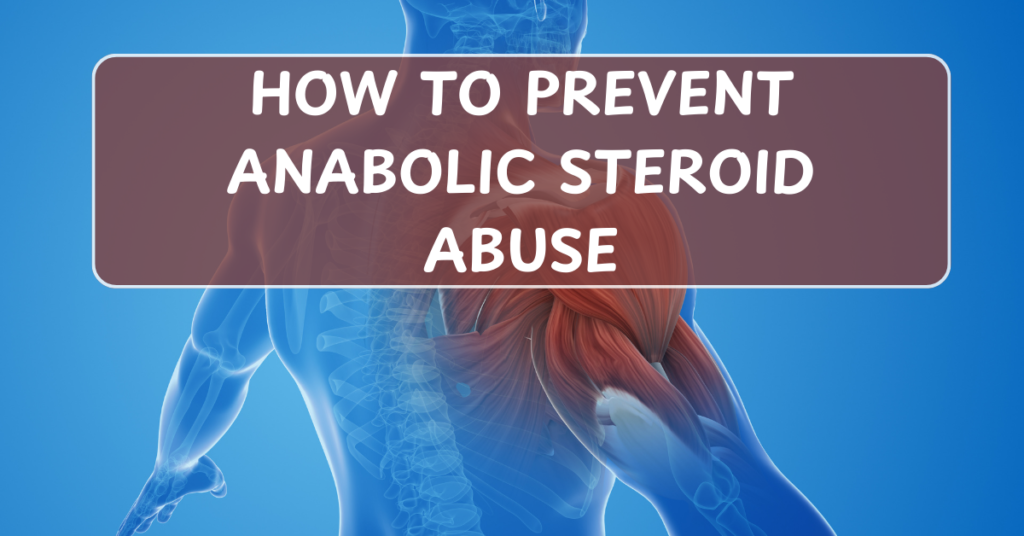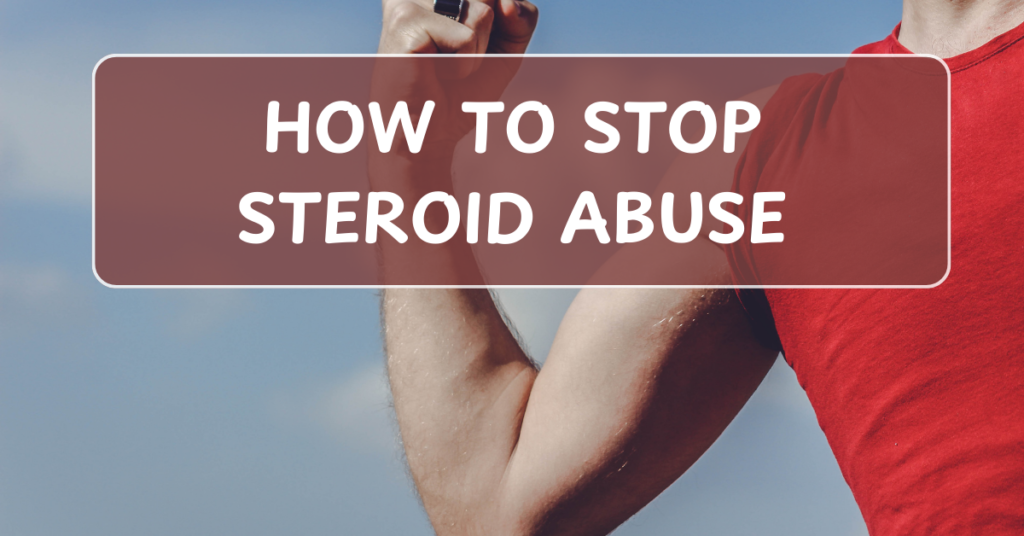
Anabolic steroid abuse, particularly among athletes and bodybuilders, is a serious issue that can have long-term physical and psychological consequences. These synthetic substances, which mimic the effects of the male hormone testosterone, are often misused to enhance muscle growth, improve performance, or improve physical appearance. Preventing anabolic steroid abuse is critical in ensuring the health and safety of individuals, particularly adolescents and young adults who may be more vulnerable to the pressures of body image and performance enhancement. Below are strategies for preventing anabolic steroid abuse:
1. Educate and Raise Awareness
One of the most effective ways to prevent anabolic steroid abuse is through education. Understanding the risks and consequences of steroid use is essential for making informed decisions.
- Educational Programs: Schools, community organizations, and sports teams should provide educational programs that focus on the dangers of steroid use, the legal consequences, and the health risks such as liver damage, cardiovascular issues, and psychiatric effects.
- Promote Healthy Body Image: Encourage realistic and positive body image standards. Media campaigns and social media influencers can play a role in promoting diverse and healthy representations of body types.
2. Encourage Open Communication
Building trust and communication between parents, coaches, and athletes is crucial in preventing steroid abuse. When individuals feel comfortable talking about the pressures they face, it is easier to identify early warning signs of abuse.
- Supportive Environment: Parents, coaches, and mentors should be supportive and approachable, creating an open space where individuals can talk about their struggles with body image, performance pressures, or insecurities.
- Mental Health Support: Ensure access to counseling and mental health resources for individuals who may be struggling with self-esteem or anxiety, both of which can drive individuals to misuse steroids for self-improvement.
3. Promote Alternative Methods for Performance Enhancement
Instead of focusing on quick fixes like steroids, it’s important to promote healthier, natural methods for improving athletic performance and building muscle.
- Strength Training and Conditioning: Encourage athletes to follow well-balanced and scientifically proven training routines that focus on gradual progress, injury prevention, and overall health.
- Nutrition and Recovery: Teach athletes the importance of nutrition, hydration, and rest. A balanced diet that supports muscle growth and performance can often achieve better results than steroid use without the associated risks.
4. Implement Strict Rules and Testing in Sports
Athletic organizations at all levels, from youth leagues to professional sports, should implement strict anti-doping policies and random drug testing.
- Testing for Steroids: Regular and random steroid testing can deter athletes from attempting to use anabolic steroids. Athletes should be aware that doping can lead to disqualification, loss of titles, and a tarnished reputation.
- Enforce Consequences: Clear and firm consequences for steroid abuse within sports should be communicated. This could include suspension, fines, or permanent bans for repeated offenses.
5. Provide Access to Professional Guidance
Access to healthcare professionals who specialize in sports medicine or endocrinology can help prevent anabolic steroid abuse by offering alternative solutions for muscle growth and performance.
- Consulting with a Doctor: Athletes or individuals looking to improve their physique should consult with a healthcare professional to discuss safe and healthy options. Professional guidance can help them make informed decisions, including using supplements that are safe and legal.
- Support Groups: For those struggling with performance-enhancing drug use, support groups or counseling sessions can provide a safe space to discuss challenges and learn from others’ experiences.
6. Lead by Example
Role models, including parents, coaches, and professionals, should set a positive example by advocating for healthy, drug-free living.
- Influential Coaches and Mentors: Coaches, especially those at the youth level, can be pivotal in shaping the mindset of athletes. They should emphasize the importance of hard work, discipline, and patience over the pursuit of shortcuts like steroids.
- Celebrity Role Models: Public figures, including athletes, actors, and fitness influencers, should be responsible in how they present fitness and bodybuilding. Promoting natural and healthy approaches to fitness can discourage young people from turning to steroids.
7. Focus on Mental Health and Stress Management
Psychological factors such as anxiety, depression, and pressure to succeed can drive some individuals toward anabolic steroid use. Focusing on mental health and stress management can reduce the likelihood of abuse.
- Stress Relief Techniques: Teach athletes healthy coping strategies, such as mindfulness, meditation, or relaxation techniques, to manage performance anxiety and other stressors.
- Psychological Counseling: Encourage individuals who show signs of emotional or psychological distress to seek therapy or counseling. Addressing underlying mental health issues can decrease the likelihood of resorting to anabolic steroids as a coping mechanism.
8. Support Peer Mentoring and Positive Social Influences
Peer pressure can often drive individuals to use steroids to fit in or gain approval. Creating a network of peer mentors can help counteract this influence.
- Peer Education: Older, more experienced athletes can serve as mentors to younger athletes, offering advice on how to excel in sports without resorting to steroids.
- Create a Drug-Free Culture: Encourage athletes and teams to create a culture of drug-free competition. This can involve public commitments to avoid steroids, fostering a sense of pride in natural achievement.
9. Legislation and Enforcement
Government policies can play an important role in reducing anabolic steroid abuse by imposing stricter laws and regulations on steroid distribution.
- Regulate Steroid Access: Governments should ensure that anabolic steroids are tightly regulated and available only through prescriptions for legitimate medical use. Stricter laws around the sale and distribution of these drugs can help reduce misuse.
- Penalties for Distributors: Strengthen penalties for those involved in the illegal distribution of anabolic steroids. This can include harsher fines, prison sentences, or business closures.
10. Encourage a Holistic Approach to Fitness and Health
Instead of focusing solely on physical appearance or performance, encourage a balanced approach to fitness that incorporates overall health and well-being.
- Physical and Mental Balance: Promote fitness programs that focus on both physical strength and mental well-being. Encourage activities that foster a sense of community and personal achievement without reliance on artificial enhancements.
- Incorporate Variety: Offer a variety of fitness activities to help individuals find what they enjoy and what works best for their body, such as yoga, swimming, hiking, or team sports. This can help prevent the unhealthy focus on muscle growth at all costs.
Conclusion
Preventing anabolic steroid abuse requires a multi-faceted approach involving education, support, and healthy alternatives. By creating environments that promote body positivity, providing access to mental health resources, encouraging healthy fitness practices, and enforcing strict anti-doping policies, we can help reduce the prevalence of steroid abuse. It’s important to foster a culture where success and physical health are defined by dedication, hard work, and natural achievement rather than shortcuts or substances that put long-term health at risk.


